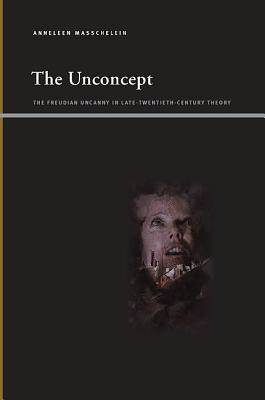
- Afhalen na 1 uur in een winkel met voorraad
- Gratis thuislevering in België vanaf € 30
- Ruim aanbod met 7 miljoen producten
- Afhalen na 1 uur in een winkel met voorraad
- Gratis thuislevering in België vanaf € 30
- Ruim aanbod met 7 miljoen producten
Omschrijving
Explores the conceptualization of the Freudian uncanny in various late-twentieth-century theoretical and critical discourses (literary studies, psychoanalysis, cultural studies, art history, trauma studies, architecture, etc.).
The Unconcept is the first genealogy of the concept of the Freudian uncanny, tracing the development, paradoxes and movements of this negative concept through various fields and disciplines from psychoanalysis, literary theory and philosophy to film studies, genre studies, sociology, religion, architecture theory, and contemporary art. Anneleen Masschelein explores the vagaries of this 'unconcept' in the twentieth century, beginning with Freud's seminal essay 'The Uncanny, ' through a period of conceptual latency, leading to the first real conceptualizations in the 1970s and then on to the present dissemination of the uncanny to exotic fields such as hauntology, the study of ghosts, robotics and artificial intelligence. She unearths new material on the uncanny from the English, French and German traditions, and sheds light on the specific status of the concept in contemporary theory and practice in the humanities. This essential reference book for researchers and students of the uncanny is written in an accessible style. Through the lens of the uncanny, the familiar contours of the intellectual history of the twentieth century appear in a new and exciting light.
Specificaties
Betrokkenen
- Auteur(s):
- Uitgeverij:
Inhoud
- Aantal bladzijden:
- 239
- Taal:
- Engels
- Reeks:
Eigenschappen
- Productcode (EAN):
- 9781438435534
- Verschijningsdatum:
- 1/05/2011
- Uitvoering:
- Hardcover
- Formaat:
- Genaaid
- Afmetingen:
- 160 mm x 231 mm
- Gewicht:
- 458 g

Alleen bij Standaard Boekhandel
Beoordelingen
We publiceren alleen reviews die voldoen aan de voorwaarden voor reviews. Bekijk onze voorwaarden voor reviews.











